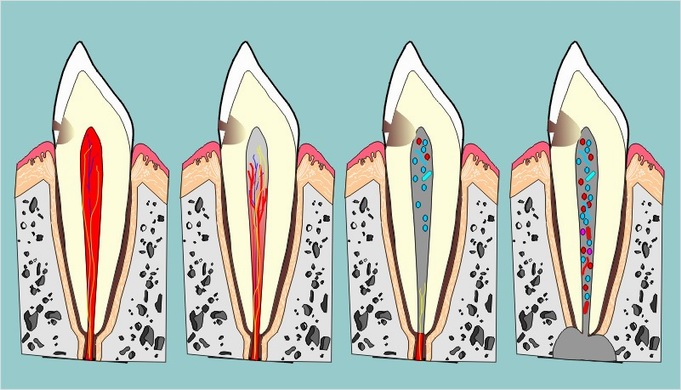Overview of apical periodontitis


Apical periodontitis is a result of bacterial activity within the root canal system. While necrosis may have been caused by several factors, most often it follows pulpitis caused by bacterial irritation.
Apical periodontitis occurs in acute (asymptomatic) and chronic (asymptomatic) forms. Apical periodontitis is usually free of symptoms; according to epidemiological studies, only 5 % of teeth with apical periodontitis cause severe symptoms within one year.
Although the radiographical signs of apical periodontitis are largely confined to the periapical bone, the etiological agents, bacteria, are found almost exclusively inside the root canal system. This is an important basis for the treatment strategies of apical periodontitis. In certain special cases, however, such as periapical actinomycosis, acute dentoalveolar abscess and open sinus tract (fistula) microbial cells are present in the tissue outside the tooth.